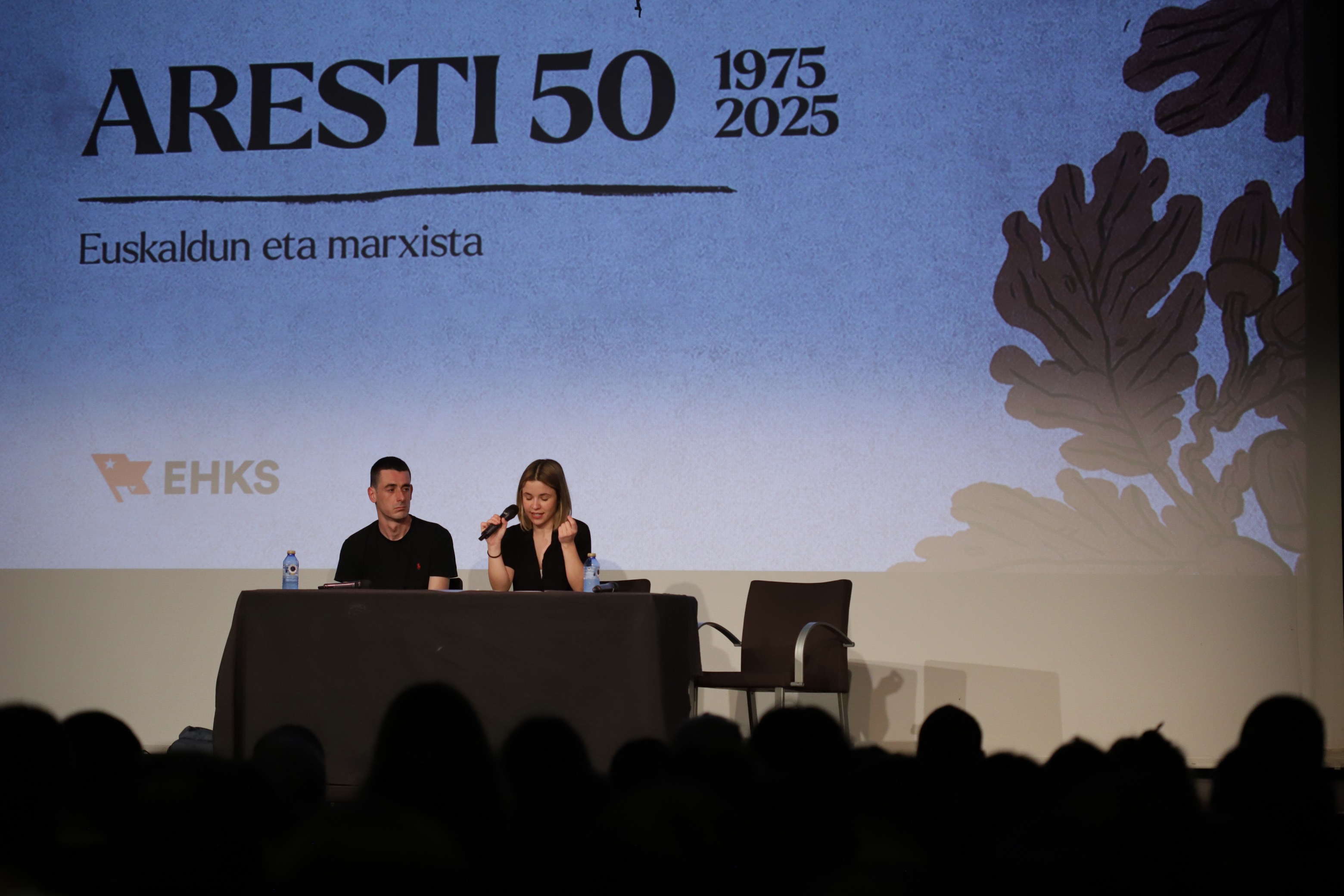Armiarma.eus: 20 years in the literary network
- It is 20 years since the launch of the Armiarma portal. What started with the Newspaper Library of Critiques and the Repository of Literary Journals has become an essential reference of Basque literature on the Internet. A brief review of the history and characteristics of the different sections of the portal.

On March 24, it was 20 years since the Repository of Literary Journals, named after the late Andima Ibinagabeitia, was published. The editorial Susa started its journey with the objective of digitizing and starting literary journals, becoming the first publication of what it is today Armiarma.eus. Although the Armiarma portal was created at the initiative of the editorial Susa, over the years they have created a network around the other network: people who collaborate in the translation, writing texts, disseminating publications, announcements of events, etc.
Before being an editorial, Susa was a literary magazine (between 1980 and 1994), and created the web with the aim of launching these publications and others online from Euskal Herria. At first, 16 journals were digitized and republished online, and there are currently 29, almost eleven thousand articles. In addition to the digitalized texts, you can also consult the information of the journals, the details of each number and the guide.
In the Basque Country, literary journals also have a small tradition, and the Ibinagabeitia project brings together most of the journals of the second half of the twentieth century, from Gernika in 1945 to the youngest fanzine Vladimir, among which you can see the old issues of the Egan and Maiatz journals that are still being published.
Furthermore, 20 years ago, they began to assemble the newspaper library of the Critiques, first on the website of the editorial Susa and then on the portal Armiarma, along with the Repository of Literary Journals. Over the years, the network has been expanding and Armiarma has been growing, following the initial plans. According to Mikel Elorza the objective was to unite the literature and the network, what the network offers was to take advantage to open a new space to the Basque literature. In fact, points out that the network allows having an unlimited deposit, but also sharing and socializing information and content, which defined the project: "Gather them, but not to hide them, but to open them." For Elorza, the possibility of contacting the possibilities and contents of the network also serves to make new readings of the literature and to open new paths.
Zubitegia is a tool that unites writers, their works and what derives from their work in one place.
Over the past 20 years, a number of instruments and portals have joined Spider. Among them is the publication that weekly nourishes the presence of literature in the network. Emailuak disseminates news about literature by email and can also be read as a blog. It started in 2002 and the email 1000.en will be sent in April.
The Zubitegi of Literature was launched in 2004. In it you can see part of the Spider network. An important part of Zubitegia is the one that collects the fact sheets of writers who write Basque literature. It contains biographical data, a photograph and a list of the books they have published and reviews, references and other links to them. In addition, every day you can consult on the web the recommendation of a writer and the forthcoming literary citations, the ephemerides of the day, the latest criticisms in the newspaper library of the criticisms, the latest emails and others. In short, Zubitegia is a tool that unites writers, their works and what is derived from their work in one place.
Armiarma also gathers other tools and websites: works translated into the Basque language and their authors' chips, basquepoetry.eus, Repository of Classics and the most recent of all ipuina.eus.
Looking to the future, the intention is to update and further expand what has been done so far, as Elorza explained. In his opinion, there are many contents that many people do not know and that offer enormous possibilities. Therefore, they want to continue to give content to what is there, but if a project like the last ipuina.eus occurs, they may launch it: “Literary illustration is not much worked, for example; literary journalism… there are areas that can be addressed. However, projects require time, that is, funding. The priority is to share and make more known what we have.”
Now that everyone has become more Franciscan than the Pope, it’s worth remembering our unsurpassed classics. There was one in the 17th century, his grace was Arnaut Oienart. And since we can’t immerse ourselves in all his works, today we will praise O.ten youth in... [+]
Aurreko tertuliako galderari erantzuteko beste modu bat izan zitekeen, akaso modu inplizituago batean, bigarren solasaldi honetako izenburua. Figura literarioaz gaindi, pertsonaia zalantzan jartzeko, edo, kontrara, pertsonaiaren testuingurua ulertzeko saiakera bat. Santi... [+]
Astelehen honetan hasita, astebetez, Jon Miranderen obra izango dute aztergai: besteren artean, Mirande nor zen argitzeaz eta errepasatzeaz gain, bere figurarekin zer egin hausnartuko dute, polemikoak baitira bere hainbat adierazpen eta testu.
Martxoaren 17an hasi eta hila bukatu bitartean, Literatura Plazara jaialdia egingo da Oiartzunen. Hirugarren urtez antolatu du egitasmoa 1545 argitaletxeak, bigarrenez bi asteko formatuan. "Literaturak plaza hartzea nahi dugu, partekatzen dugun zaletasuna ageri-agerian... [+]
1984an ‘Bizitza Nola Badoan’ lehen poema liburua (Maiatz) argitaratu zuenetik hainbat poema-liburu, narrazio eta eleberri argitaratu ditu Itxaro Borda idazleak. 2024an argitaratu zuen azken lana, ‘Itzalen tektonika’ (SUSA), eta egunero zutabea idazten du... [+]




















